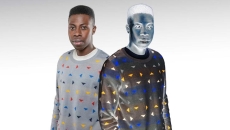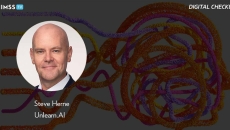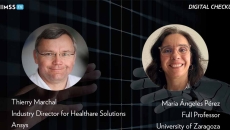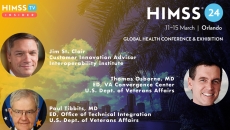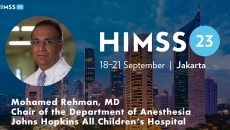digital twins
The company is on track to be live in 10 U.S. states by the end of 2025.
The company plans to expand partnerships with health plans and employers to provide more individuals with digital twin technology designed to improve metabolic health.
Unlearn leverages digital twin models to simulate how participants may respond to treatments, according to CEO Steve Herne. This approach streamlines clinical trials by enhancing data precision and improving the quality of outcomes.
Trace will use Unlearn's digital twin generator for ALS to create digital twins of clinical trial participants to advance ALS research.
Ansys industry director for Healthcare Solutions Thierry Marchal and researcher María Angeles Pérez discuss how combining clinical data and mathematical models can increase precision and expedite treatment plans.
HIMSS24
Jim St. Clair of the Interoperability Institute and Dr. Paul Tibbits and Dr. Thomas Osborne of the U.S. Dept. of Veterans Affairs discuss how digital twins are used within federal hospital systems and academic universities to boost care.
The California-based company will use the funds to expand its Whole Body Twin Technology, aimed at preventing and reversing metabolic disease.
Dr. Mohamed Rehman, chair of the department of anesthesia at Johns Hopkins All Children's Hospital, talks about digital twin adoption and data aggregation to create a digital copy of an individual for personalized medicine.
With the creation of digital twins in studies, Unlearn generates an intelligent control arm that can reduce the sample size and decrease the number of participants given the placebo.
